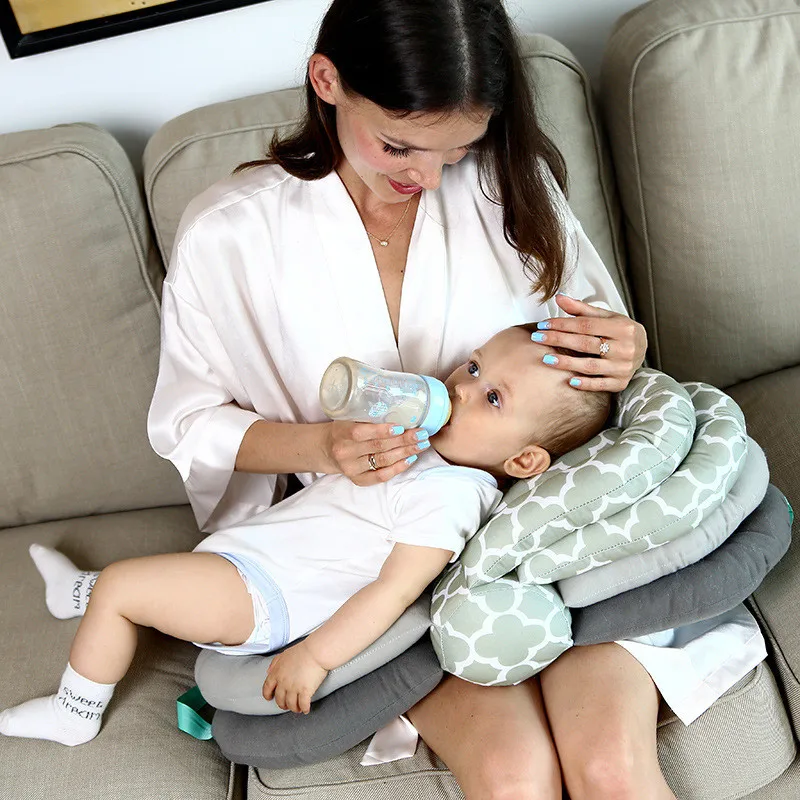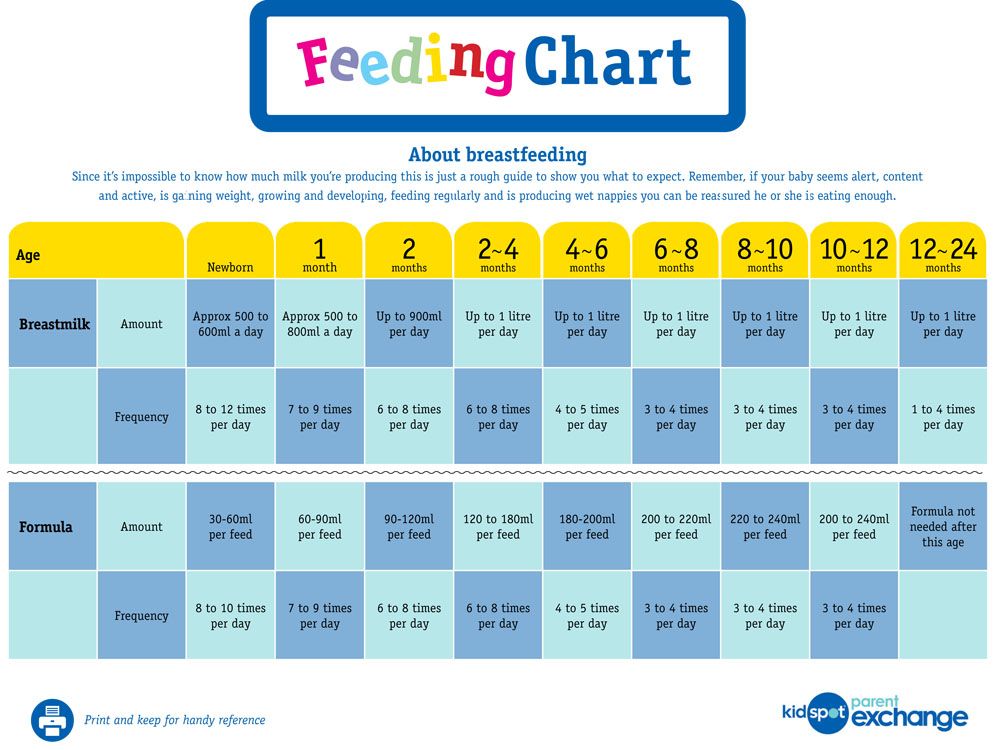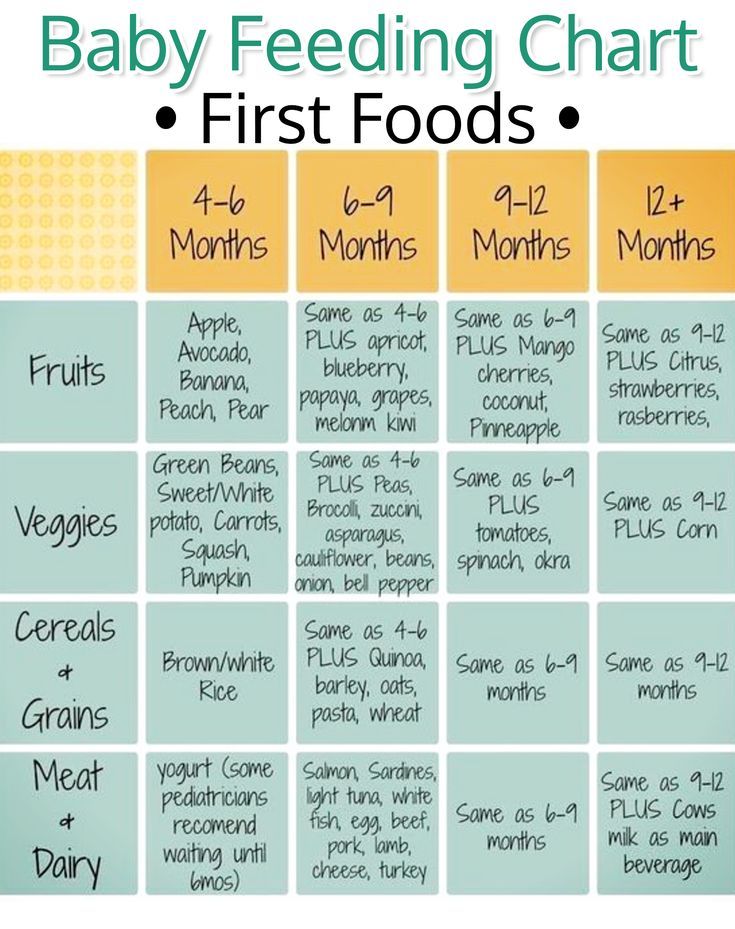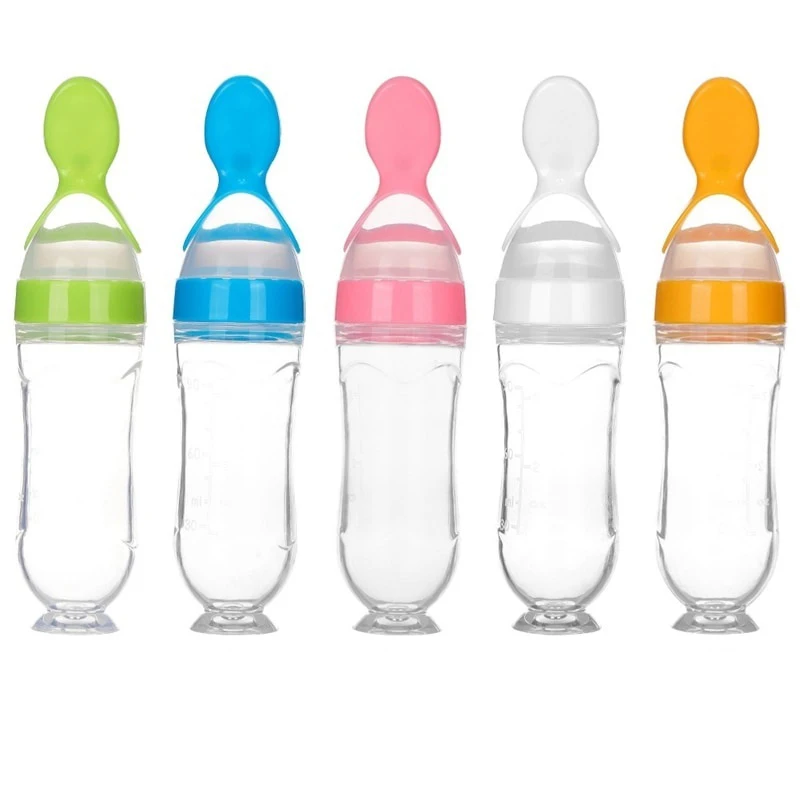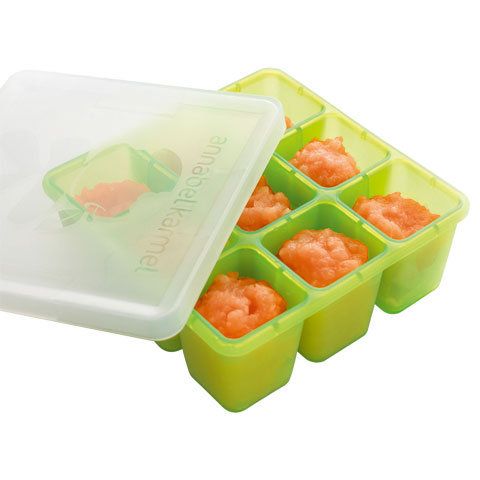Baby feeding and nursing
Breastfeeding FAQs: How Much and How Often (for Parents)
Breastfeeding is a natural thing to do, but it still comes with its fair share of questions. Here's what you need to know about how often and how long to breastfeed your baby.
How Often Should I Breastfeed?
Newborn babies should breastfeed 8–12 times per day for about the first month. Breast milk is easily digested, so newborns are hungry often. Frequent feedings helps stimulate your milk production during the first few weeks.
By the time your baby is 1–2 months old, he or she probably will nurse 7–9 times a day.
In the first few weeks of life, breastfeeding should be "on demand" (when your baby is hungry), which is about every 1-1/2 to 3 hours. As newborns get older, they'll nurse less often, and may have a more predictable schedule. Some might feed every 90 minutes, whereas others might go 2–3 hours between feedings.
Newborns should not go more than about 4 hours without feeding, even overnight.
How Do I Count the Time Between Feedings?
Count the length of time between feedings from the time your baby begins to nurse (rather than at the end) to when your little one starts nursing again. In other words, when your doctor asks how often your baby is feeding, you can say "about every 2 hours" if your first feeding started at 6 a.m., the next feeding was around 8 a.m., then 10 a.m., and so on.
Especially at first, you might feel like you're nursing around the clock, which is normal. Soon enough, your baby will go longer between feedings.
How Long Does Nursing Take?
Newborns may nurse for up to 20 minutes or longer on one or both breasts. As babies get older and more skilled at breastfeeding, they may take about 5–10 minutes on each side.
How long it takes to breastfeed depends on you, your baby, and other things, such as whether:
- your milk supply has come in (this usually happens 2–5 days after birth)
- your let-down reflex (which causes milk to flow from the nipple) happens right away or after a few minutes into a feeding
- your milk flow is slow or fast
- the baby has a good latch, taking in as much as possible of your areola (the dark circle of skin around your nipple)
- your baby begins gulping right away or takes it slow
- your baby is sleepy or distracted
Call your doctor if you're worried that your baby's feedings seem too short or too long.
When Should I Alternate Breasts?
Alternate breasts and try to give each one the same amount of nursing time throughout the day. This helps to keep up your milk supply in both breasts and prevents painful engorgement (when your breasts overfill with milk).
You may switch breasts in the middle of each feeding and then alternate which breast you offer first for each feeding. Can't remember where your baby last nursed? It can help to attach a reminder — like a safety pin or small ribbon — to your bra strap so you'll know which breast your baby last nursed on. Then, start with that breast at the next feeding. Or, keep a notebook handy or use a breastfeeding app to keep track of how your baby feeds.
Your baby may like switching breasts at each feeding or prefer to nurse just on one side. If so, then offer the other breast at the next feeding. Do whatever works best and is the most comfortable for you and your baby.
How Often Should I Burp My Baby During Feedings?
After your baby finishes on one side, try burping before switching breasts. Sometimes, the movement alone can be enough to cause a baby to burp.
Sometimes, the movement alone can be enough to cause a baby to burp.
Some infants need more burping, others less, and it can vary from feeding to feeding.
If your baby spits up a lot, try burping more often. While it's normal for infants to "spit up" a small amount after eating or during burping, a baby should not vomit after feeding. If your baby throws up all or most of a feeding, there could be a problem that needs medical care. If you're worried that your baby is spitting up too much, call your doctor.
Why Is My Baby Hungrier Than Usual?
When babies go through a period of rapid growth (called a growth spurt), they want to eat more than usual. These can happen at any time. But in the early months, growth spurts often happen when a baby is:
- 7–14 days old
- 2 months old
- 4 months old
- 6 months old
During these times and whenever your baby seems extra hungry, follow your little one's hunger cues. You may need to breastfeed more often for a while.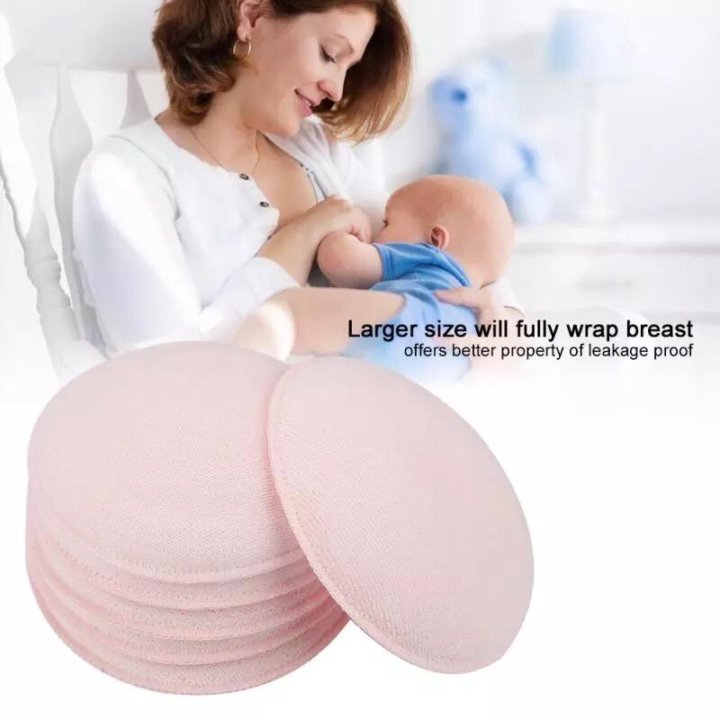
How Long Should I Breastfeed My Baby?
That's a personal choice. Experts recommend that babies be breastfed exclusively (without formula, water, juice, non–breast milk, or food) for the first 6 months. Then, breastfeeding can continue until 12 months (and beyond) if it's working for you and your baby.
Breastfeeding has many benefits for mom and baby both. Studies show that breastfeeding can lessen a baby's chances of diarrhea, ear infections, and bacterial meningitis, or make symptoms less severe. Breastfeeding also may protect children from sudden infant death syndrome (SIDS), diabetes, obesity, and asthma.
For moms, breastfeeding burns calories and helps shrink the uterus. In fact, breastfeeding moms might return to their pre–pregnancy shape and weight quicker. Breastfeeding also helps lower a woman's risk of diseases like:
- breast cancer
- high blood pressure
- diabetes
- heart disease
It also might help protect moms from uterine cancer and ovarian cancer.
Breastfeeding and Returning to Your Workplace | Nutrition
Many parents have questions about expressing breast milk when returning to their workplace after having a baby. Whether returning to work from maternity leave or starting a new job after having your baby, you may be working from home, at a work site, or some combination of the two. Below you will find common questions with information and resources to help you prepare to return to your workplace. The Office on Women’s Healthexternal icon provides additional information.
What are my rights as a breastfeeding employee?
The federal Break Time for Nursing Mothers Provisionexternal icon of the Patient Protection and Affordable Care Act requires employers to support breastfeeding employees by providing:
- A reasonable break time to express breast milk for 1 year after your child’s birth.
- A private, non-bathroom space to express breast milk.
This law applies to most hourly employees and some salaried employees (nonexempt workers) who are covered by the Fair Labor Standards Actexternal icon. Most states also have laws that protect breastfeeding employees.
Most states also have laws that protect breastfeeding employees.
For breastfeeding people who work in settings with higher risk of potential exposure to COVID-19, such as health care settings, they should wear a mask while breastfeeding or expressing milk in the workplace. Learn more at Care for Breastfeeding People.
How do I talk with my employer about my needs as I return to work?
If you work outside your home, talk with your employer before you return to your workplace about expressing breast milk during work hours. Having this conversation early will help make sure a plan is in place.
Talk with your employer about:
- Where there is a private, non-bathroom space to express breast milk.
- Where breast milk can be stored (eg, refrigerator, insulated cooler).
- Where pump parts can be cleaned.
- What times are best for you during your work schedule for expressing milk.
The timing and length of breaks needed to express milk and clean breast pump parts may change from day to day and over time. It may be helpful to discuss this with your employer since they may not be familiar with the process of expressing milk or cleaning pump equipment.
It may be helpful to discuss this with your employer since they may not be familiar with the process of expressing milk or cleaning pump equipment.
Some bras and pumps are designed to be used hands-free! This allows you to collect milk for your baby while doing other things.
How should I clean my breast pump kit parts at my workplace?
For best practices on cleaning pump kit parts, visit CDC’s FAQ page on cleaning breast milk pump parts.
What if I don’t have time to wash pump parts or have access to a sink and water to wash parts?
Careful cleaning of your breast pump parts after every use is important to prevent germs from contaminating the milk you feed your baby. Cleaning breast pump parts at work may require creative solutions depending on your workplace. Here are some ways that you might handle these challenges:
- Bring multiple breast pump kits to your workplace so that a clean kit can be used for each pumping session. Take used parts home after work and wash them all at once.

- If you have access to a microwave, rinse parts and then use steam bags made for cleaning breast pump parts. Some pump parts should not be steamed in the microwave, so be sure to check the manufacturer’s instructions.
- Learn how to hand express directly into milk collection containers.
Can I store my pump parts in the refrigerator between pump sessions while at my workplace?
The CDC and most breast pump manufacturers recommend cleaning pump parts after every use to help protect babies from germs.
More information about storing pump parts in the refrigerator between pumping sessions can be found on CDC’s FAQ page on breast pump cleaning.
Where can I store breast milk at my workplace?
- In the refrigerator: Expressed breast milk is a food and may be stored alongside other foods in any refrigerator that is appropriate for food storage.
- In an insulated cooler: You can store and carry freshly expressed milk in an insulated cooler bag with frozen ice packs for up to 24 hours.
 Once you get home use the milk right away, store it in the refrigerator, or freeze it.
Once you get home use the milk right away, store it in the refrigerator, or freeze it.
Always label breast milk containers with your name and the date you expressed the milk. You can also label your cooler with your name and contact information.
How can I pump and store breast milk if my work requires travel?
For detailed information about travel, visit Travel Recommendations for Nursing Families
What else might help me continue breastfeeding after returning to work?
- Practice using your pump or hand expressing breast milk before returning to work so you are comfortable with the process.
- Build a supply of frozen breast milk before returning to work.
- Think about how much breast milk you will need to leave at home or at childcare for your baby before your first day back at work.
- Think about how often you will need to pump or express breast milk while at work to have enough for your baby while you are apart.

- Once breastfeeding is going well, practice bottle feeding your breast milk so your baby will be used to a bottle while you are away at work. If your baby is having trouble taking a bottle at first, try having another adult feed your baby with the bottle. You can also try different types of bottles and nipples.
Top of Page
- Break times and spaces to express milkexternal icon
- Helpful tips for pumping breast milkexternal icon
- General breast milk storage
- Breast milk storage at work
- FAQs on breast pump cleaning
- Types of employers that provide breastfeeding support in the workplaceexternal icon
- Traveling with Children | Transportation Security Administration (tsa.gov)external icon
Caring for a newborn baby - a note to mom
During the first year of life, a child makes a giant leap in his physical and emotional development (just imagine that his brain grows 1.5 times!). But parents also learn a lot, especially if the baby is the first. “How to care for the ears, nose, eyes is, of course, very important, and we will definitely talk about it. But it is equally important to learn to feel your child, ”according to Yulia Viktorovna Andronnikova, pediatrician of the highest category, head of the pediatric department of the Center for Traditional Obstetrics and Family Medicine, this feeling of security and love will accompany the child all his life.
“How to care for the ears, nose, eyes is, of course, very important, and we will definitely talk about it. But it is equally important to learn to feel your child, ”according to Yulia Viktorovna Andronnikova, pediatrician of the highest category, head of the pediatric department of the Center for Traditional Obstetrics and Family Medicine, this feeling of security and love will accompany the child all his life.
All children are different, their needs are different, and mom and dad will have to find their own way, relying on the opinions of specialists and their own intuition.
The only thing that can be said for sure is that extreme is always bad. And in the upbringing of children in the first place.
Breastfeeding
An important aspect of infant care is proper breastfeeding. This is “the core on which the whole care of the baby is wound. Breast sucking is the main interest of the baby in the first months of life, and in the future and for quite a long time - a priority interest. Breastfeeding helps to build the rhythm of life, help the baby in time, calm down, feed," says Lilia Valentinovna Kazakova, pediatrician of the Territory of Health and SM, AKEV breastfeeding consultant. Sucking activates the bowels. This will help to accustom to "planting" from early childhood. Just in case, let's make a reservation - breastfeeding is certainly good, but it is not a panacea and does not guarantee either good health or deeper affection. With other mother's efforts, "artificials" can easily catch up, or even overtake "babies" in all respects.
Breastfeeding helps to build the rhythm of life, help the baby in time, calm down, feed," says Lilia Valentinovna Kazakova, pediatrician of the Territory of Health and SM, AKEV breastfeeding consultant. Sucking activates the bowels. This will help to accustom to "planting" from early childhood. Just in case, let's make a reservation - breastfeeding is certainly good, but it is not a panacea and does not guarantee either good health or deeper affection. With other mother's efforts, "artificials" can easily catch up, or even overtake "babies" in all respects.
Bathing, caring for the umbilical wound and skin
Baby's skin is thin and vulnerable, sweating and diaper rash quickly appear on it. Therefore, it is necessary to arrange air baths for the child (the optimum temperature in the room is 20-22 C, humidity is 55-60%). You can bathe daily - the first month for 2-3 minutes (water - about 37 C). Then gradually increasing the time (up to 10 minutes) and lowering the temperature (by 1-2 C).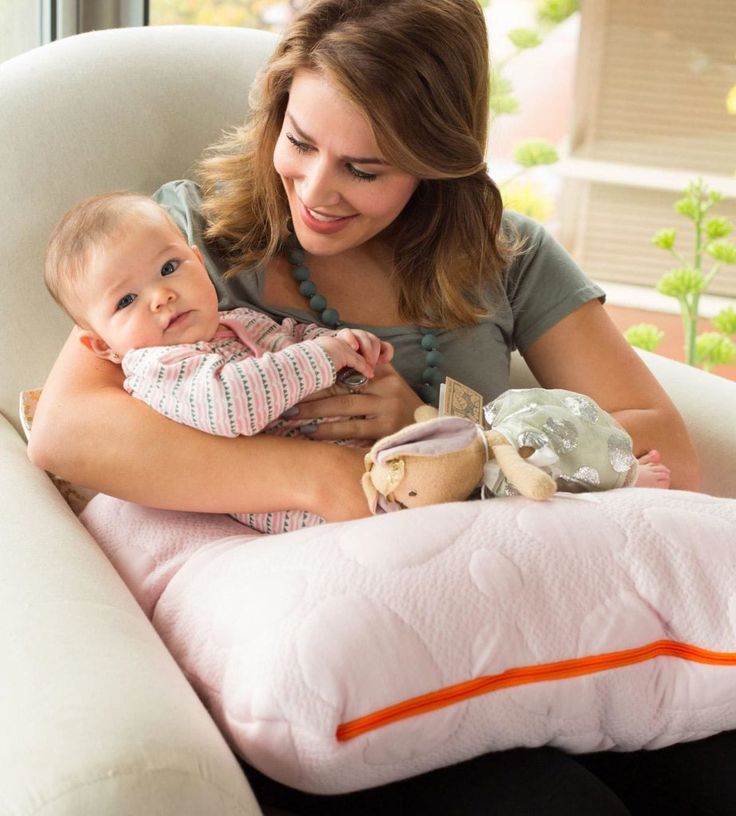 It is better to use baby soap / foam less often - once a week, not more often.
It is better to use baby soap / foam less often - once a week, not more often.
"Never bathe your baby on an empty stomach." This is not a swimmer's training, but a relaxing and hygienic procedure. The kid should be calm and contented with life," reminds L. V. Kazakova. When taking it out of the water, wrap it in a large towel and immediately breastfeed (eat). He sucks, dries, calms down, and after 10-15 minutes you will calmly do everything you need. Use only sterile water to treat the remaining umbilical cord (other solutions may interfere with the natural healing process). After rinsing, dry thoroughly with a clean towel (not cotton! To avoid leaving fibers on the navel).
Hygiene for girls and boys
“The first and most important thing for a newborn girl is not to injure her genitals by mechanically removing the lubricant (she will go away on her own over time). Rinse with warm water (use soap once every 3-4 days), and then be sure to moisturize (distribute 1 drop of oil over the entire washed surface),” Galina Vladimirovna Ovsyannikova, an obstetrician-gynecologist of the Health Territory, advises washing from front to back (for this it is more convenient keep your daughter upside down). For signs of inflammation, take chamomile baths, and for more severe redness, treat with Miramistin. Another important - exclusively "female" - nuance of hygiene: "Immediately after birth, a neonatologist-pediatrician should look at the genital gap. Mom needs to be constantly monitored until 5-6 years old so that she does not overgrow (once every 3-4 days).
For signs of inflammation, take chamomile baths, and for more severe redness, treat with Miramistin. Another important - exclusively "female" - nuance of hygiene: "Immediately after birth, a neonatologist-pediatrician should look at the genital gap. Mom needs to be constantly monitored until 5-6 years old so that she does not overgrow (once every 3-4 days).
For boys, pediatricians recommend washing the genitals only from the outside (up to adolescence): during the day, if necessary, wipe with wet baby wipes, and in the evening, while bathing, wash with warm water from the outside and do not climb anywhere else (closing foreskin and smegma are the best natural defense against bacteria)! As for phimosis, up to 3 years is the norm, and a variant of the norm almost until adolescence.
Eye Care
The eyes of a newborn do not require special care. Everything that accumulates on the surface of the baby's eye is removed on its own when the baby blinks. In the morning, in the corners of the eyes, you can see the mucus accumulated during the night - this is also the norm.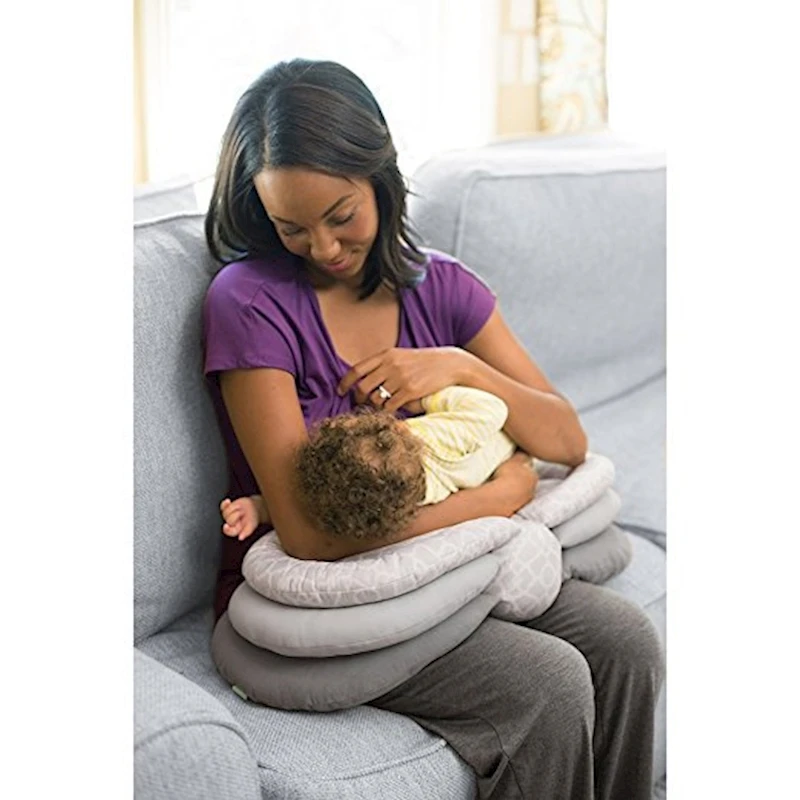 Rinse the eyelashes / eyelids of the baby with boiled water, wiping with a cotton swab from the outer corner to the inner.
Rinse the eyelashes / eyelids of the baby with boiled water, wiping with a cotton swab from the outer corner to the inner.
The cause of profuse discharge from the eyes of a newborn may be dacryocystitis, blockage of the nasolacrimal canal. "Proper massage allows you to cope with this disease by the age of 2 months." Massage is simple, but it will be better if a specialist shows it. Also, ophthalmologist Anastasia Borisovna Petukhova recalls that the first examination by an ophthalmologist is immediately after birth, while still in the maternity hospital, and the second is at the age of 1 month: “It is a mistake to think that nothing can be done if the child is still very small. For example, a congenital cataract is operated on at the age of 2-3 months, while later surgical treatment may not be as effective.”
Nose and ear care
Yes, they can and should be cleaned. But the main thing is not to overdo it, warns the otolaryngologist, homeopath and mother of three children Ekaterina Vladislavovna Polinskaya: “You only need to clean the auricle (by no means the ear canal!) After bathing the child. ” A small child still does not know how to blow his nose himself (he will learn this by the age of 2-3), so you can instill drops in him in the morning and in the evening based on isotonic sodium chloride solution. Children under one year of age do not need to use sprays - the auditory tube is still short and wide, this can provoke a rapid reflux of infection from the nasal cavity. The same applies to instillation of breast milk into the nose. “This is physiologically unreasonable and blocks the mucociliary clearance of the nasal cavity. Yes, milk contains proteins, fats and carbohydrates, as well as protective antibodies that are necessary for the baby. But they must still act through the oral cavity, ”explains the doctor.
” A small child still does not know how to blow his nose himself (he will learn this by the age of 2-3), so you can instill drops in him in the morning and in the evening based on isotonic sodium chloride solution. Children under one year of age do not need to use sprays - the auditory tube is still short and wide, this can provoke a rapid reflux of infection from the nasal cavity. The same applies to instillation of breast milk into the nose. “This is physiologically unreasonable and blocks the mucociliary clearance of the nasal cavity. Yes, milk contains proteins, fats and carbohydrates, as well as protective antibodies that are necessary for the baby. But they must still act through the oral cavity, ”explains the doctor.
Fundamentals of Fundamentals
Not all advances that make life easier for older people benefit the younger generation. Due to the constant use of diapers, pediatrician Yulia Viktorovna Andronnikova warns, the child may have difficulties with the formation of toilet skills, in the "diaper" he does not feel "bottom", does not realize that he is pissing - he does not have the necessary feeling of discomfort for this.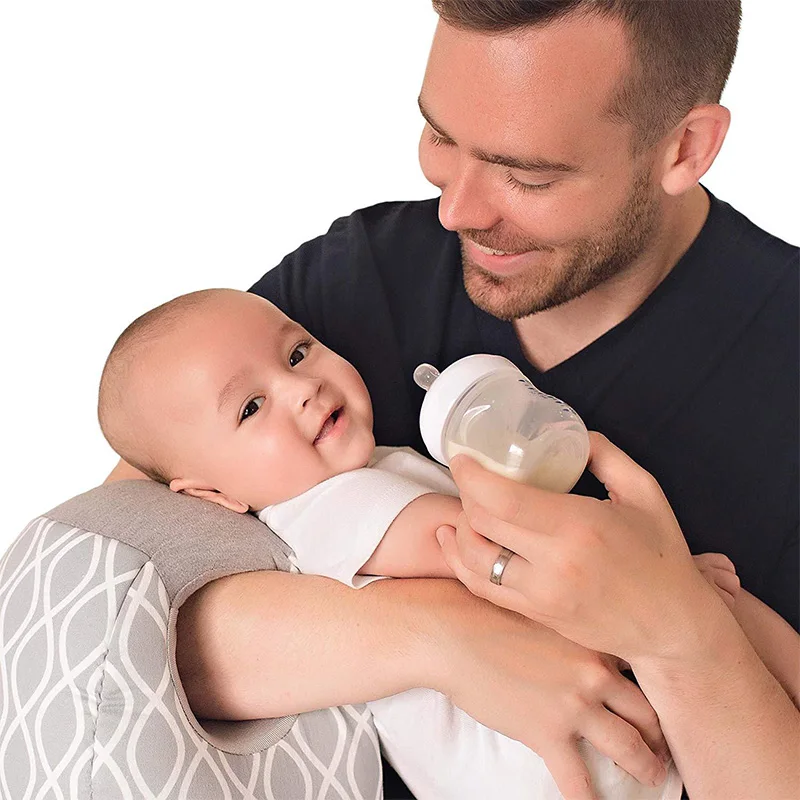 Instead of disposable diapers, pay attention to "reusable" cloth diapers - they help to form the necessary skills much faster and are more physiological. The next important task for parents of babies up to a year, according to Yulia Viktorovna, is to teach them to chew and swallow correctly! “Our children drink and eat everything puree until almost 3-4 years old! This has a bad effect on chewing skills, diet. Does not "teach" the stomach to work normally. And finally, you need to organize a sleep schedule. “Unfortunately, modern children often live in a mode that is convenient for their parents: late bedtime, late rising. Whereas all the hormones necessary for the growth and proper formation of internal organs work precisely in sleep, moreover, from nine in the evening. Hug, kiss and rejoice... Together!
Instead of disposable diapers, pay attention to "reusable" cloth diapers - they help to form the necessary skills much faster and are more physiological. The next important task for parents of babies up to a year, according to Yulia Viktorovna, is to teach them to chew and swallow correctly! “Our children drink and eat everything puree until almost 3-4 years old! This has a bad effect on chewing skills, diet. Does not "teach" the stomach to work normally. And finally, you need to organize a sleep schedule. “Unfortunately, modern children often live in a mode that is convenient for their parents: late bedtime, late rising. Whereas all the hormones necessary for the growth and proper formation of internal organs work precisely in sleep, moreover, from nine in the evening. Hug, kiss and rejoice... Together!
And finally, the most important thing. The mental development of the baby, the development of different parts of the brain, and, therefore, different sensory organs, depend on the external impressions that he receives in the first year of life. “Without the proper experience of one-on-one communication with a caring adult, the orbito-frontal cortex is unlikely to be sufficiently developed. It has been found that the baby's heart rate synchronizes with the parent's, so if the parent is relaxed and calm, so will the baby. The mother's nervous system essentially communicates with the baby's nervous system, calming it down through touch." (Sue Gerhardt "How Love Shapes the Baby's Brain").
“Without the proper experience of one-on-one communication with a caring adult, the orbito-frontal cortex is unlikely to be sufficiently developed. It has been found that the baby's heart rate synchronizes with the parent's, so if the parent is relaxed and calm, so will the baby. The mother's nervous system essentially communicates with the baby's nervous system, calming it down through touch." (Sue Gerhardt "How Love Shapes the Baby's Brain").
By hugging our baby, we, in fact, develop and strengthen it. But we don’t spoil at all and we teach it to be handled, as other grandmothers assure us. Nod to these grandmothers and hug your little (yet small) happiness even more tenderly: this will only make it stronger!
Newborn at home | First breastfeeding
The first two days at home with a newborn is the time when parents realize that their lives have changed forever. Find out how to get through these exciting but sometimes challenging days.
Share this information
Depending on how the birth went, how the baby feels and where you live, discharge from the hospital may take place in a few days. If you have had an uneventful delivery, you can immediately rest in bed. But regardless of the number of books on child care they read and courses for pregnant women, finding themselves with a newborn in their arms, new parents inevitably ask themselves: “What to do next?”. It's okay - there's too much to think about. Take your time, be gentle with yourself, and don't hesitate to ask for help.
If you have had an uneventful delivery, you can immediately rest in bed. But regardless of the number of books on child care they read and courses for pregnant women, finding themselves with a newborn in their arms, new parents inevitably ask themselves: “What to do next?”. It's okay - there's too much to think about. Take your time, be gentle with yourself, and don't hesitate to ask for help.
Can I get support at home?
Your doctor, lactation specialist, or consultant should check your baby's latch-on after delivery so you can start breastfeeding successfully. Even if you were told that everything is in order, if there is any doubt, it is recommended to check the capture again.
During the first few days of your stay at home, a visiting nurse will visit you, and she will also book you in for your first appointment with the pediatrician. In the first days, a newborn can lose up to 10% of weight, but by the fifth or sixth day, he should begin to recover and return to birth weight on the 10th - 14th day.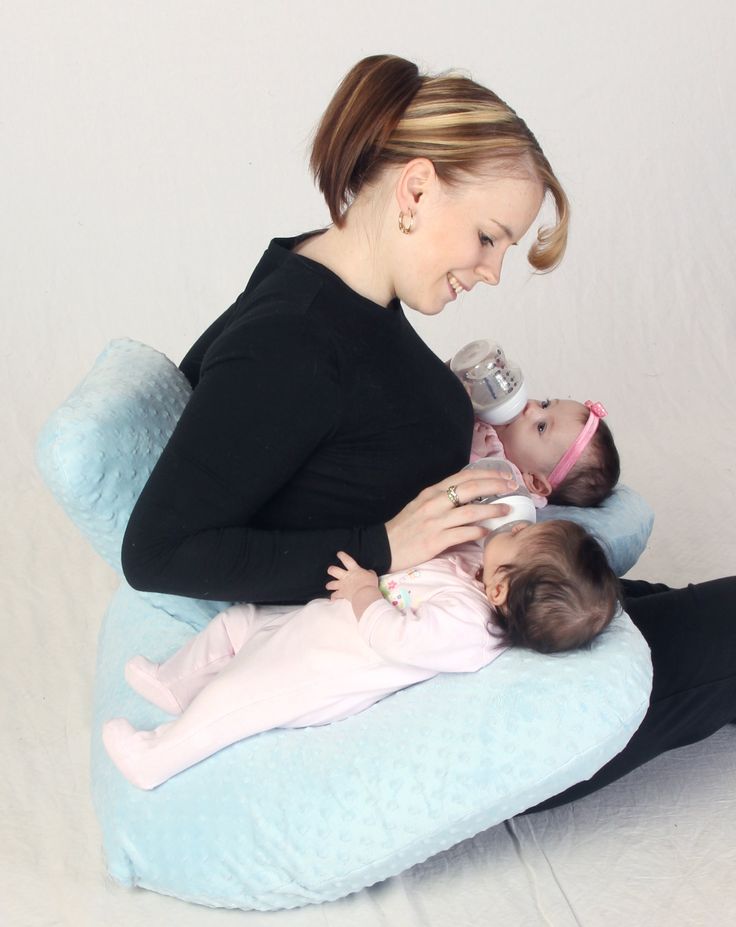 If this does not happen, consult your doctor.
If this does not happen, consult your doctor.
“I only discovered that my baby had a tongue tie a few days after birth. At the maternity hospital, they told me that everything was fine with the latch, and I did not experience pain during feeding, so we only learned about the problem because he did not put on weight. We had the surgery and after that everything was fine,” recalls Emma, a mother from Australia.
How to prepare for breastfeeding at home?
Ideally, prepare everything you need for the first day at home with your newborn: diapers and diapers for your baby, comfortable pillows, nipple cleaner, bra pads and healthy nutrition for a nursing mother. Choose a comfortable and cozy place for breastfeeding. Keep in mind that you have to spend a lot of time there!
“After my caesarean section, it was too low for me to sit on the sofa, so we urgently ordered some pillows,” recalls Alex, a mother from the UK. - I arranged two "feeding areas" for myself - one near the sofa, the other next to the bed.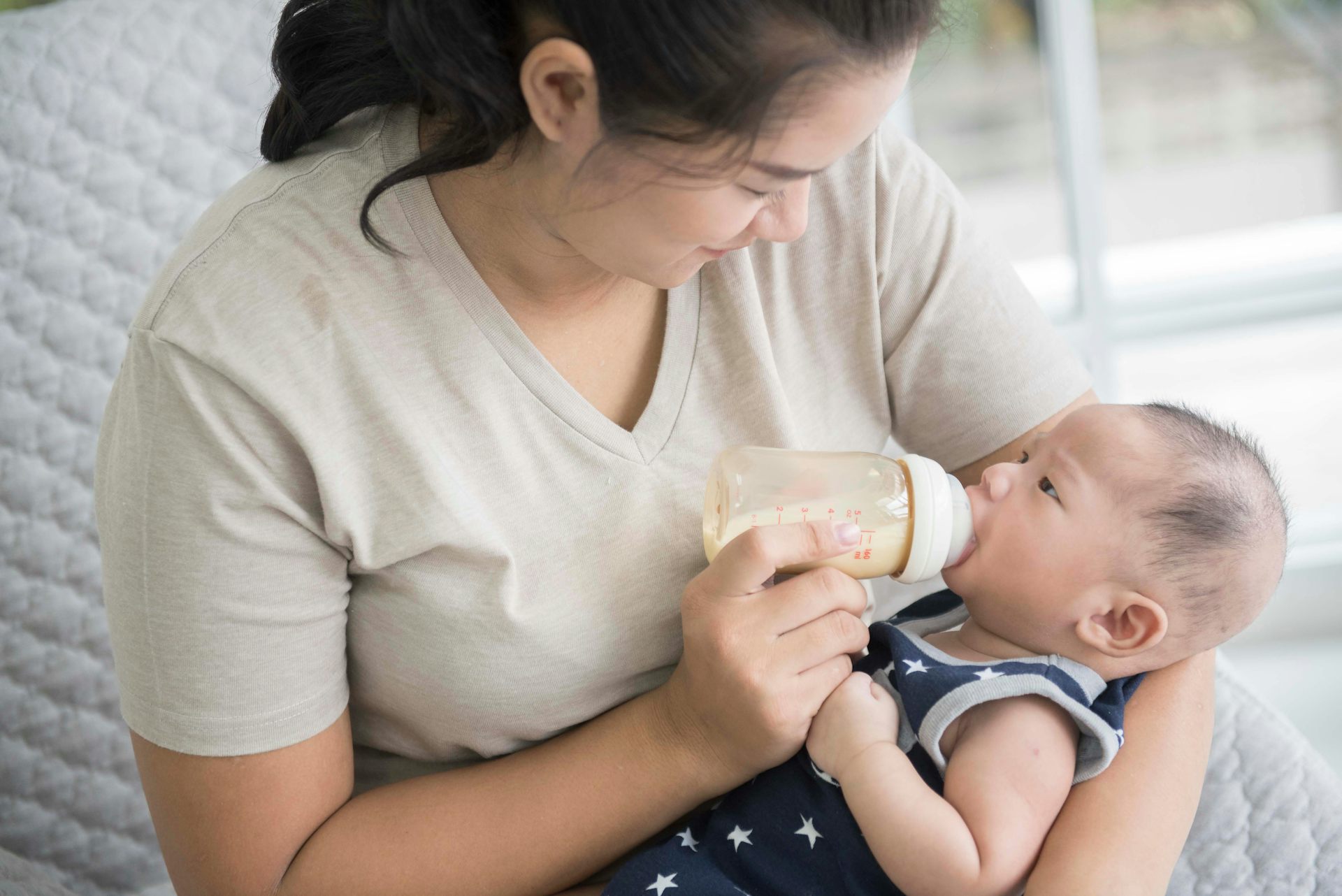 Everything you need was there: food, water, phone charger, lip balm, diapers, and a TV remote control. Everyone was strictly forbidden to rearrange anything!”
Everything you need was there: food, water, phone charger, lip balm, diapers, and a TV remote control. Everyone was strictly forbidden to rearrange anything!”
What kind of care does a newborn need?
Newborns are quite simple. If the baby is full, he is comfortable and calm, he will get enough of the most important thing - sleep!
In fact, on the first day of life, a newborn sleeps almost all the time. As a rule, the next day, and also when milk comes (usually two to four days after birth), he begins to wake up and ask for more food. Use the first days to rest and adapt. Keep your baby close to you at all times to keep him calm - in a bassinet by the bed, in a carrycot, or in a sling if you are moving around the house.
It is only natural that the baby wants to be constantly in your arms - after all, for nine months he knew only you and getting to know the world can be frightening for him. When you, your partner or another reliable warm person hold the baby in your arms and gently rock it, it calms him. Try to accommodate your child's needs as much as possible. This period will end quickly: the baby will grow up and gradually learn to spend more time apart from you.
Try to accommodate your child's needs as much as possible. This period will end quickly: the baby will grow up and gradually learn to spend more time apart from you.
In addition, skin-to-skin contact stimulates the production of a powerful hormone, oxytocin, in both you and your baby. Oxytocin is also released when you are near your baby, look at him, hear him cry, or even just think about him. This amazing hormone contributes to the formation of a strong bond between mother and child, which lasts a lifetime. In addition, it stimulates the flow of milk when breastfeeding or pumping, so the closer you are to the baby, the easier it will be to start milk production and start breastfeeding successfully.
At this stage, it is impossible to spoil a newborn or develop “bad habits” in him, no matter what caring relatives may tell you about this, so try not to pay attention to their advice. And don't try to set a feeding schedule for your baby - he's still too young, and in any case, many babies are simply not able to stick to the schedule. Feed your baby whenever the first signs of hunger appear, such as smacking, looking for the breast, or sucking. This will help produce milk. And feeds and the number of wet and soiled diapers can be tracked using a special application, for example, MyMedela.
Feed your baby whenever the first signs of hunger appear, such as smacking, looking for the breast, or sucking. This will help produce milk. And feeds and the number of wet and soiled diapers can be tracked using a special application, for example, MyMedela.
Make sure your baby gets enough milk. This is evidenced by how many times a day he urinates and empties. On the first day, the child should urinate once and have at least one bowel movement. The first stool, called meconium, will be black and sticky. On the second day, the child should urinate twice and produce at least two portions of greenish-brown stool, already less sticky. If this does not happen, contact your doctor.
What kind of care does mother need?
Your body needs rest, even if the birth was easy. Give yourself time to recover. Delegate diaper changes, cooking, and caring for older children to your partner, relatives, or hire a housekeeper if you can afford it. There is a busy time ahead of you, so take care of your strength.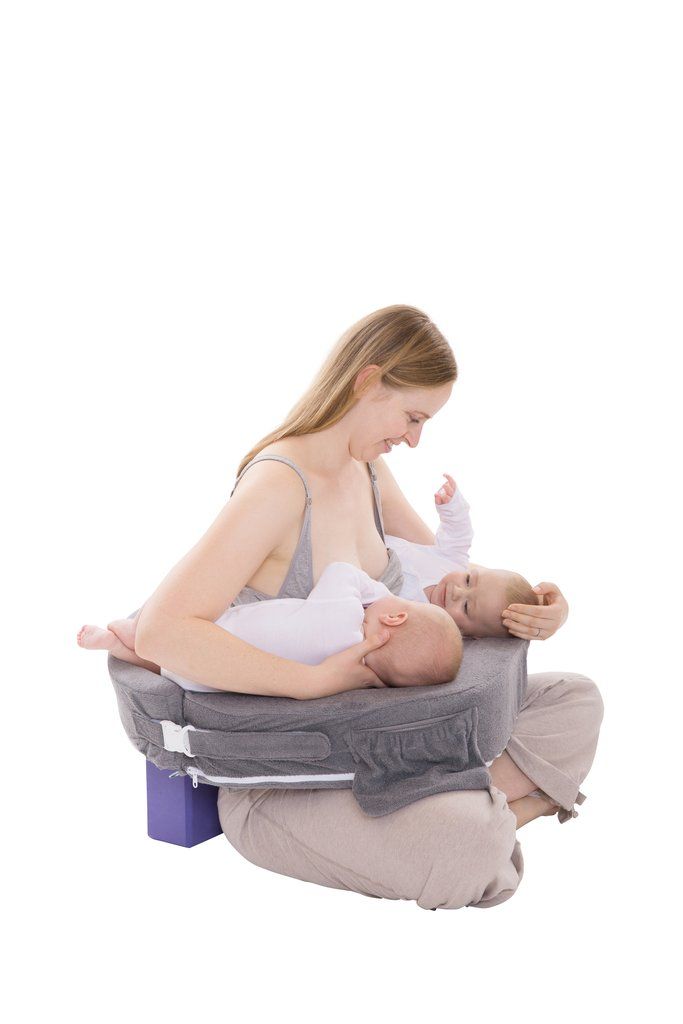 Focus on building a strong bond with your baby and getting your milk production going. Everything else will have to wait.
Focus on building a strong bond with your baby and getting your milk production going. Everything else will have to wait.
“Shop online, ask your family to bring you drinks, eat often and well to gain strength,” advises Gillian, a mother from the UK, “I was blissful the first week, but what a stressful period came after was a surprise to me . So it's important to have a good rest."
You are not required to host crowds. Invite only those who can bring something useful or help you. “If possible, try to spend those precious first days alone with your partner and baby,” advises Kerry-Lynn, a mother of two from the UK, “For example, I was embarrassed to breastfeed in front of strangers, which did not contribute to the success of this process in any way.”
How can a partner help you during the early days of breastfeeding?
The mother naturally plays the main role in breastfeeding, but the partner and other family members can provide you with all kinds of help and also establish a connection with the baby - soothing him, holding him and wearing him in a sling.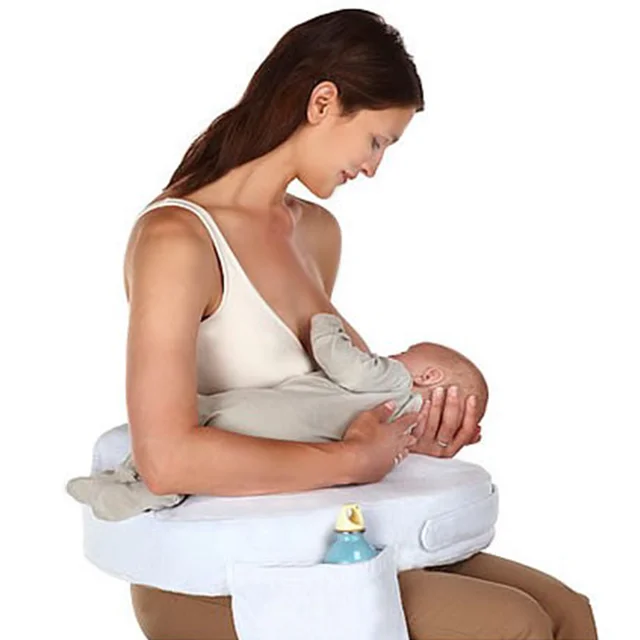
In addition, they may limit the number of guests so that you can relax. Many new moms claim they can't sleep during the day, but all it takes is a little effort and the support of a partner, and you can learn to take a short nap to "recharge." The bedroom should be dark and quiet. Remove all electronic screens and mobile phones. Even if you just lie in peace and quiet for 20 minutes while your partner takes the baby, it will give your body the rest it needs. And over time, you will learn to relax and fall asleep.
“In the early days, I just couldn’t cope without my husband,” admits Kate, a mother of two from the UK, “He woke up with me at night and handed me my daughters to feed, changed their diapers and often put them back to bed himself . And if one of the girls couldn’t sleep early in the morning, he would go downstairs with her and rock her to sleep.”
This support has been proven to promote successful breastfeeding. The results of the study show that new mothers who received help from a partner in the first days after giving birth were more successful in breastfeeding and breastfeeding for longer. 1
1
Why do I feel depressed?
Once at home, you may feel lonely and helpless. Feel free to ask for support from someone you know or your doctor. In the first week after giving birth, many mothers are overly emotional, whiny or irritable. These are manifestations of the so-called postpartum depression associated with a hormonal surge against the background of the arrival of milk. 2 These symptoms are quite normal and usually go away after a few days. However, if this condition persists for more than two weeks, or if you feel increasingly overwhelmed and start to despair, check with your doctor.
“It was a very emotional period - thanks to a friend who warned me that the third day could be especially difficult,” recalls Mariah, a mother from Canada. “It is quite normal to feel very depressed in the early days.”
Why doesn't breastfeeding happen naturally?
It would seem that such a natural and necessary process as breastfeeding should take care of itself. However, in reality, it takes time to get used to it. Breastfeeding, just like driving a car or any other new skill, takes practice, and it's no surprise that you can have both successes and failures. For many new mothers, this comes as an unpleasant surprise. “I thought it would be enough just to put the baby to the breast, but as it turned out, I was very wrong,” says Joan, a mother from the UK, “After talking with my friends about this topic, I found that many are so mistaken. For some reason, no one says that in reality everything is not so simple.
However, in reality, it takes time to get used to it. Breastfeeding, just like driving a car or any other new skill, takes practice, and it's no surprise that you can have both successes and failures. For many new mothers, this comes as an unpleasant surprise. “I thought it would be enough just to put the baby to the breast, but as it turned out, I was very wrong,” says Joan, a mother from the UK, “After talking with my friends about this topic, I found that many are so mistaken. For some reason, no one says that in reality everything is not so simple.
A US survey found that 92% of new mothers experience difficulty on the third day of breastfeeding. 3 If this is your case, don't worry. Take a deep breath and seek help. Before giving birth, write down the phone numbers of lactation specialists and consultants, addresses of useful websites and support groups.
“If you have the opportunity, go to a local La Leche League meeting. There you will receive advice and support from other breastfeeding mothers,” recommends Jane, mother of two from the USA.
And here is the advice of Michelle, a mother from Australia: “Try to seek advice and help from qualified specialists as often as possible, but in the first two days, stay away from ignorant people who can only confuse you.”
Finally, don't be tempted to formula feed your baby just because some "caring" relative claims it will calm your baby and give you rest, or because you suspect you're not getting enough breast milk. The best way to establish successful breastfeeding is to always breastfeed your baby directly. In the early days, it is normal for a baby to want to eat very often - signs of hunger can appear as early as 45 minutes after feeding. It actually stimulates milk production.
“The first two days are very difficult because you are both studying,” explains Ruth, a mother from the UK, “As often as possible, ask for help, treat yourself to delicious food, relax and be kind to yourself.”
Literature
1 Hunter T. Breastfeeding initiation and duration in first-time mothers: exploring the impact of father involvement in the early post-partum period.